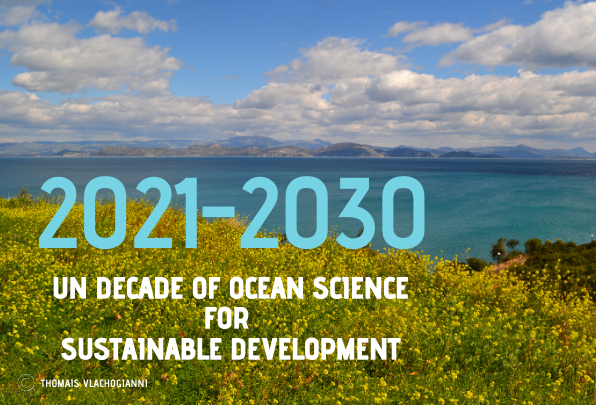 At the very beginning of what we can define a “super-year” for the oceans, in the words of Gaetano Leone, the UNEP/MAP Secretariat Coordinator, the global ocean community was reunited from January 21 to 23, 2020 in Venice, for the second time in less than a year, to address global challenges for freshwater, coastal and ocean systems.
At the very beginning of what we can define a “super-year” for the oceans, in the words of Gaetano Leone, the UNEP/MAP Secretariat Coordinator, the global ocean community was reunited from January 21 to 23, 2020 in Venice, for the second time in less than a year, to address global challenges for freshwater, coastal and ocean systems.
The three-day regional workshop was held in the context of the UN Decade of Ocean Science for Sustainable Development 2021-2030, which aims to provide a ‘once in a lifetime’ opportunity to create a new foundation, across the science-policy interface, to strengthen the management of our oceans and coasts for the benefit of humanity. The workshop was hosted by the Italian Oceanographic Commission and co-organized with the IOC-UNESCO, the European Commission, the United Nations Environment/Mediterranean Action Plan (UNEP/MAP) and the Mediterranean Science Commission.
Ocean leaders/champions/key stakeholders came together with the overarching goal to join efforts, mobilize resources, create partnerships and engage governments in moving towards “The Ocean We Need for The Future We Want”. This increased visibility aims to reach the global public and inspire learning and science-based decision-making and increase citizen ocean literacy.
This event -that followed up on the first global planning meeting held last May in Denmark- targeted specifically the Mediterranean region, and delivered through 6 specific working groups recommended deliverables and partnerships to meet the Decade’s six societal objectives:
- A clean ocean/Mediterranean Sea
- A healthy and resilient ocean/Mediterranean Sea
- A predicted ocean/Mediterranean Sea
- A safe ocean/Mediterranean Sea
- A sustainably harvested and productive ocean/Mediterranean Sea
- A transparent and accessible ocean/Mediterranean Sea
Michael Scoullos, Chairman of MIO-ECSDE and panel member of one of these working groups, said: “What is important to remember is that the ocean, which is the most effective “buffering” system of our planet, is already reacting with the ’new’ phenomena of climate change (e.g. acidification, higher temperatures at greater depths, heat shocks, etc.). To secure clean oceans, our work in the sea itself unavoidably needs to be coupled and coordinated with the management of the entire water cycle on the terrestrial part, involving appropriate science and technology, as well as all strengthened science-policy interactions through planning and management. Science and technology alone are not enough, though. Appropriate governance is needed, as well.”
The regional workshop offered a crucial opportunity to co-design mission-oriented research strategies in line with the 2030 Agenda, Horizon Europe, the BLUEMED initiative, the Mediterranean Action Plan, the WestMED Initiative, the EU Strategy for the Adriatic-Ionian Region (EUSAIR), while focusing on the Mediterranean countries’ specific needs and priorities in terms of transforming knowledge systems; accelerating transfer of technology; enabling training and education; and fostering science-policy dialogues.
According to the Global Ocean Science Report of UNESCO, Ocean Science accounts for only between 0,04% and 4% of total research and development expenditures worldwide. Therefore, the Decade aspires to become a means to harvest innovative ideas towards better understanding of the whole ocean system.
The UN Decade of Ocean Science for Sustainable Development 2021-2030 envisions to facilitate regional, interdisciplinary discussions across sectors (such as: ocean science and technology; ocean policy and sustainable development; business and industry; NGOs and civil society; donors and foundations) to identify concrete deliverables and partnerships to meet the Decade’s six societal objectives.
Read this in French here